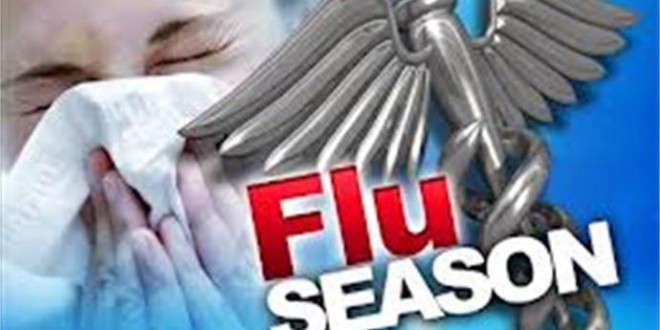Flu is widespread in at least 35 states, up from 25 in the previous week, the U.S. Centers for Disease Control and Prevention says.
A CDC flu expert says the agency’s weekly report released Friday shows “We’re in the thick of flu season.”
Lyn Finelli said the season likely hasn’t peaked, but that it’s too soon to know if it will be worse than normal.
The numbers aren’t as high so far as last year, when flu season started early.
Flu usually peaks in January or February.
The number of people seeking medical care for the flu climbed to more than 4 percent of all doctor visits last week, a near doubling from two weeks earlier.
Press Releases : Greenwich Hospital
January 10, 2014 (Greenwich, CT) – Flu season is here and it’s here with a vengeance, according to Connecticut health officials. As of Jan. 9, 2014, there were 680 confirmed cases across the state, with 239 in Fairfield County alone. The most recent report from the federal Centers for Disease Control (CDC) confirms that the flu is widespread in 25 states. So, what is the flu, how do you know if you have it and how can you help prevent getting it in the first place?
“Influenza, commonly known as the flu, is a contagious respiratory illness caused by influenza viruses. Flu can cause mild to severe illness and in extreme cases, death.” says Sandra Stricoff, infection preventionist, Department of Infectious Diseases at Greenwich Hospital. “The predominant strain we’re seeing this season is H1N1, which is especially hazardous to younger and middle-aged people.”
While it’s sometimes hard to tell the difference between the common cold and the flu, in general, flu symptoms are far more severe, and, unlike a cold, can lead to serious health problems such as pneumonia and bacterial infections. According to the CDC, someone with the flu will experience some or all of these symptoms:
• Fever and chills
• Cough
• Sore throat
• Runny or stuffy nose
• Muscle or body aches
• Headaches
• Fatigue
• Vomiting and diarrhea (these are more common in young children)
Anti-viral medications are recommended for those with severe flu and those with conditions that place them at higher risk for severe disease. These medications can shorten the duration of the illness and even help prevent serious complications. Anti-viral medications work best when started early. Don’t delay contacting your healthcare provider if you develop symptoms of flu.
To avoid getting flu, the old adage, “prevention is the best medicine,” rings true. Stricoff recommends following these flu prevention rules:
• Get vaccinated! Flu vaccinations are recommended for those six months and older. It’s not too late to get a flu shot.
• Wash your hands and wash them often. If soap and water are not available, use an alcohol-based hand sanitizer.
• Avoid close contact with people who are sick. (If you’re sick, stay away from others to protect them from becoming sick.)
• Clean and disinfect surfaces at home, work and school, especially if someone who is ill has touched them.
• Avoid touching your eyes, nose or mouth, especially after touching a contaminated surface. Germs can easily be spread this way.
• Finally, practice routine healthy habits, such as eating a balanced diet, keeping hydrated and getting enough sleep.
Press Releases/Canadajournal
 Canada Journal – News of the World Articles and videos to bring you the biggest Canadian news stories from across the country every day
Canada Journal – News of the World Articles and videos to bring you the biggest Canadian news stories from across the country every day



